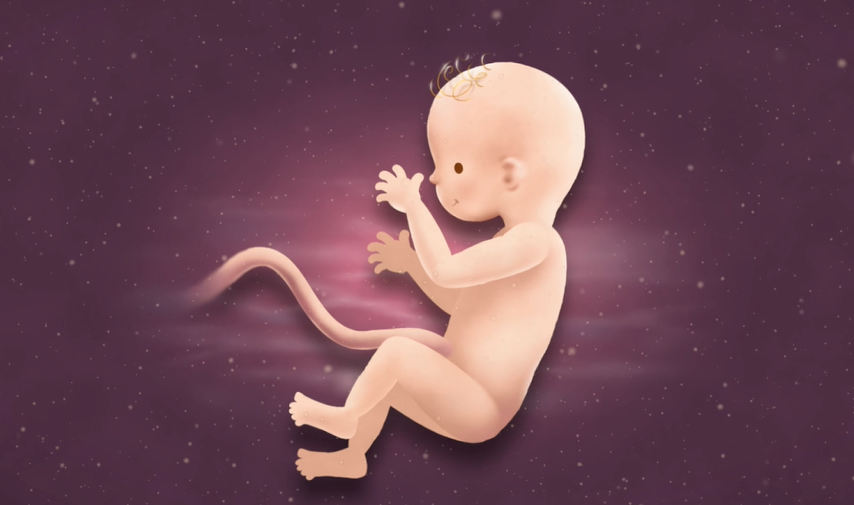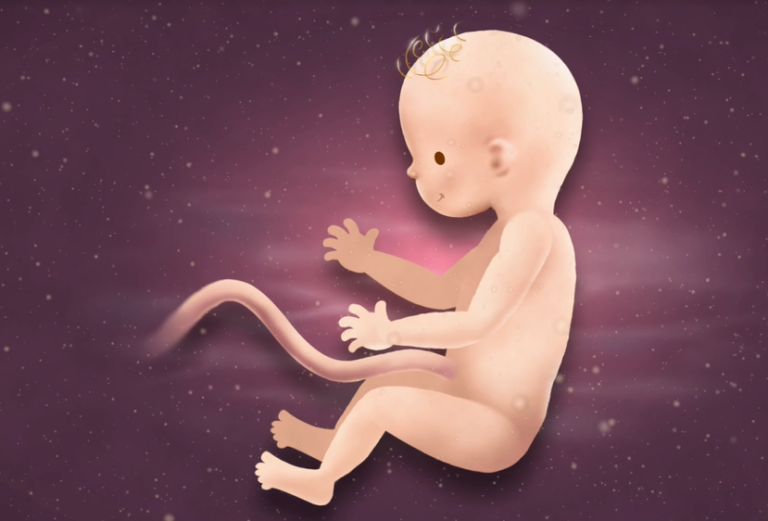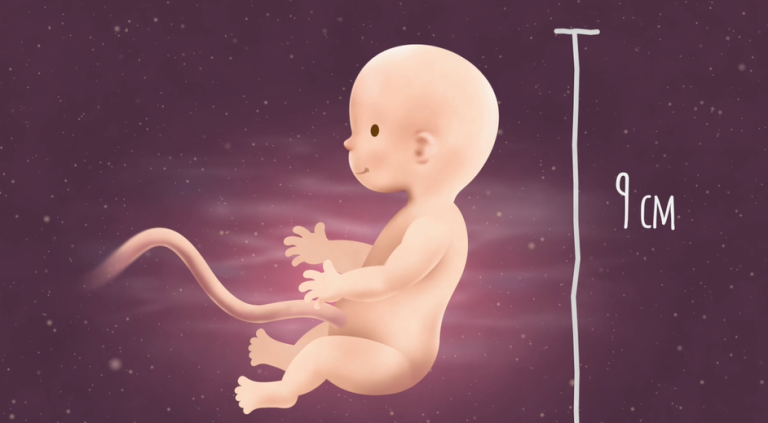Time seems to fly during this exciting period, and you have already arrived at the fifteenth week of pregnancy. Your baby bump is showing now, and people will start congratulating you on your pregnancy. In addition, your baby’s growth and development further accelerate. You will be surprised by the ultrasound at how large your baby has become. And you will feel one step closer to meeting your baby. So, what awaits the two of you in the fifteenth week of pregnancy?
Your Baby at Fifteen Weeks
You experience more comfort in pregnancy now than during the first months. Of course, you will still experience physical and hormonal changes, but the discomforts of the second trimester are usually significantly less. While you try to adapt to pregnancy, your fifteen-week-old baby does not sit idle either. He is growing and developing rapidly.
How Big is Your Baby at Fifteen Weeks?
One of the things you want to know from your doctor at each check-up is how much your baby has grown. This excitement will only increase until birth. In the fifteenth week, your baby is the size of a large orange. In the table below, you can find the average weight and length of a fifteen-week-old foetus.
| Gestational Age | Weight | Length |
| 15th week | 50−55 g | 9−10 cm |
These values are averages and may vary from baby to baby due to differences in the moment of fertilisation, which cannot be determined exactly. If fertilisation occurred later than expected, your baby’s values might be lower. Only your doctor can tell you whether there is cause for concern or not.
Development of the Organ Systems and New Skills
Your baby – called a foetus until birth – develops continuously. Gradually his organs and organ systems begin to function. Let us examine the details of these changes in the fifteenth week together.
- The Nervous System
The brain and nerve cells continue to develop until birth (and beyond). Due to the formation of the fatty layer called the myelin sheath, your baby’s movements increase.
- The Circulatory System
The placenta is now well-developed and ready to fulfil its task. It ensures the exchange of blood and nutrients between the mother and the baby. Therefore, you should be extra careful about your consumption and avoid anything harmful.
- The Digestive System
The meconium, your baby’s first poop, needs a little more time to develop and settle in the colon fully.
- The Respiratory System
The lungs continue to branch out in the fifteenth week of pregnancy. Also, the glands in the lungs begin to secrete mucus, and your baby continues his breathing exercises.
- The Musculoskeletal System
As your baby’s bones and muscles grow stronger, the intensity of his movements increases. In addition, as his nervous system develops, your baby’s movements become increasingly voluntarily rather than merely reflexively. Your baby also starts to move his facial muscles and may smile, look angry, or show surprise, even though this is still involuntarily.
- The Urinary System
The kidneys, one of the parts of the urinary system, continue to develop and work this week.
- The Reproductive System
If you want, you can find out the gender of your baby at fifteen weeks, at least if your baby is positioned well. If not, your doctor will wait to tell you until he is completely sure. In that case you may need to show a little more patience.
- The Endocrine and Immune System
While your baby’s immune system has not been completed yet, the amniotic fluid protects him. Since it forms such a great protective layer, your baby’s immune system can develop slower than his other systems.
Your Baby’s Movements at Fifteen Weeks
As your baby’s skeleton and muscles develop, he can now move his joints flexibly and with more strength, and his bones harden. Nevertheless, they will not lose their flexibility for a comfortable delivery.
We know you are looking forward to the day you can feel your little one’s movements and that moment may have come. At fifteen weeks, you may be able to sense your baby’s movements. However, these sensations are commonly mistaken for gas in your belly, especially during a first pregnancy.
A Fifteen-Week-Old Foetus’s Sense Organs
As your baby’s vital organs develop and start to work, his sense organs also develop. His tongue, eyes, ears, skin, and nose grow and become more responsive to stimuli.
- The Eyes and the Sense of Sight
Your baby’s eyes are still closed. Yet, even with his eyelids closed, he can now sense the incoming light in the womb. Around the twenty-third week, his eyes will begin to open.
- The Ears and the Sense of Hearing
In the previous week, the bones of the inner ear started hardening, and the ears have almost reached their proper position. Your baby has to wait only a little longer before he can start hearing the sounds of the outside world.
- The Skin and the Sense of Touch
Your baby’s skin is transparent, and the soft, downy lanugo hairs continue to grow. You can see blood running through his veins under the thin skin beneath these hairs. Your baby responds to touch, and you may feel your baby shift in the other direction when you touch your belly.
- The Tongue and the Sense of Taste
Your baby swallows amniotic fluid when he opens and closes his mouth. Along with the taste of this harmless liquid, he gradually begins to smell it.
- The Nose and the Sense of Smell
Your baby’s nose is now very prominent when viewed from the side. As his sense of taste develops, so does his sense of smell. In a short while, these senses will begin to work fully.
How Many Months is Your baby at Fifteen Weeks?
Pregnancy is a period of nine months and ten days, corresponding to forty weeks. Although we are used to expressing this period in months, your doctor will talk about weeks. So, how can you convert the number of weeks into months? Let us calculate this together:
1 week = 7 days, 1 month = 30 days
15 weeks = 15×7 = 105
105/30 = 3 months 15 days
According to this calculation, you have left 3.5 months behind and are now in the fourth month.
Your Body at Fifteen Weeks of Pregnancy
Your baby’s growth and development cause several physical and psychological changes due to hormonal fluctuations. So, what kind of changes await you at fifteen weeks of pregnancy?
- Weight gain
One of the most obvious physical changes in pregnancy is weight gain. Your baby has now entered a rapid growth phase. He has almost doubled in size compared to the previous week. So, it is inevitable to gain weight now, but it still is important to keep it under control.
- Breast enlargement and tenderness
The breasts and mammary glands grow due to increased oestrogen and progesterone. You may feel tenderness or pain in your nipples. You can ask your doctor about how to relieve this. It is also normal to have milky white discharge from your nipples.
- Nausea
Most expectant mothers say that morning sickness decreases in the second trimester, that they regain their appetite and that their energy is restored. However, some women only start to experience nausea now. Every pregnancy is different.
- Urinary tract infections
In the fifteenth week of pregnancy, urinary tract infections are quite common. If you feel you have to urinate more than usual, feel a burning sensation when urinating and peeing is difficult, or have a fever, you may have a urinary tract infection. In that case, contact your doctor right away.
- Heartburn or reflux
Many expectant mothers complain of heartburn caused by increased progesterone and oestrogen. This relaxes the smooth muscles, including the digestive tract, and slows down the digestive system, including the emptying of the stomach. This is important so the nutrients can be absorbed in your blood circulation and reach the baby. However, this also causes reflux. Additionally, the increased pressure of your growing uterus on the stomach and other organs is also a cause of reflux.
- Groin and abdominal pain
With pregnancy, the connective and muscle tissues around the expanding uterus stretch. Therefore, it is normal to experience pain and soreness.
- Low blood pressure
With pregnancy, your blood volume expands and causes the widening of your veins. This causes a decrease in the amount of blood returning to the heart, leading to a drop in blood pressure. This is especially common in the first twenty-four weeks of pregnancy.
- Oral health
Pregnancy hormones affect the teeth and gums. Just like other mucous tissues, the gums may start to swell and bleed. Again, the same hormones can pave the way for some bacterial build-up and the formation of tartar. If you have issues with your oral health, you should consult a dentist.
Suggestions to Minimise Troublesome Pregnancy Symptoms
Although the second trimester is regarded as the “honeymoon of pregnancy,” some symptoms may still disturb you during this period. We have collected several tips you can easily apply to minimise these annoying symptoms of the fifteenth week of pregnancy.
- If you think you may be developing a urinary tract infection, you should drink plenty of water and fluids.
- Practising sleeping on your side now is a good idea. Later on, this will become crucial. When you lie on your back, your uterus will press on important blood vessels, reducing the blood flow to the baby. In addition, some mothers may experience difficulties breathing when lying on their backs. To prevent you from rolling on your back and stabilise your position, you can place a pillow behind your back and one between your knees and ankles as well.
- During pregnancy, you may have difficulty getting enough deep sleep and sleeping uninterruptedly as you might have to change your sleeping position or urinate often. This often causes insomnia. At the same time, good sleep is important to prepare for birth and the postpartum period. For decent and uninterrupted sleep, you can:
- Try to go to bed at the same time every evening and wake up at the same time every morning.
- Drink the necessary fluids during the day and reduce your evening intake. This will help you urinate less at night so you can sleep more soundly.
- Have a walk outdoors in the evening to relax.
- Reading before sleep may help you fall asleep. You can read books about baby care and development.
How Much Weight Should You Gain?
You probably wonder how much weight you will gain in the fifteenth week of pregnancy. Your baby is growing rapidly, and the average weight gain this week is 300-500 grams. This rate will increase over time, so keep your weight gain within limits as your doctor recommends. This will help you in the later stages of pregnancy.
Nutritional Recommendations at Fifteen Weeks
Your baby receives his nutrition from the foods you eat, so you should be extra careful about consuming an adequate and balanced diet and avoiding harmful things.
- Continue to follow the diet recommended by your doctor and take the prescribed supplements such as folic acid, iron, and calcium.
- Nuts are particularly useful and life-saving snacks during pregnancy. They are rich in nutrition and incredibly beneficial for you and your baby. You can safely consume nuts such as hazelnuts, walnuts, and pistachios. Have them as a regular snack and carry them with you for emergencies when you have no time to eat a full meal.
- Be careful to hydrate well and consume enough water. This will reduce certain pregnancy symptoms and help prevent oedema and urinary tract infections. Make sure to compensate for the water you lose through sweating by consuming extra fluids, especially during summer or sports.
- Avoid skipping meals.
- Have fruits and protein-rich foods as a snack to give you and your baby extra energy.
Exercise Recommendations at Fifteen Weeks
Exercise stays important throughout pregnancy. It helps you prepare for childbirth by strengthening your muscles while controlling weight gain. As your uterus and belly have started to expand by the fifteenth week of pregnancy, avoid exercises that require you to lie on your back for some time. Ideal activities are:
- Pregnancy Pilates
- Pregnancy yoga
- Light-paced walking
Fifteen-Weeks-Pregnancy Checklist
- You can now take the quadruple screening test. This test measures your baby via ultrasound. On top of that, a blood sample is taken from the mother. This allows for a risk calculation for certain genetic defects. It is a diagnostic test and does not give definitive results. The test is performed between the fifteenth and twenty-first weeks.
If the double screening test you had before showed that there is a risk that your baby may have a genetic condition, your doctor might recommend an amniocentesis. This test involves taking a sample of the amniotic fluid with a thin needle guided by ultrasound. This test can be done between the fifteenth and eighteenth week. However, the test involves certain risks, such as infection. Therefore, you should carefully consider whether you want to take this test, and it is usually preferred to await the results of the quadruple screening test.
Another less invasive option is to have the NIPT test, the Non-Invasive Pregnancy Test. This test involves a blood draw from the mother and does not pose any risk for the foetus. It is considered to be quite accurate as well. It is usually offered if previous tests indicate an increased risk of genetic conditions like Down’s syndrome.
- As morning sickness usually reduces in the fifteenth week of pregnancy, the second trimester is ideal for travelling. Make some holiday plans now to relax and regenerate.
Letter from your baby
Hi mom! Did you know I have grown enough to fit your hands at fifteen weeks? Also, my hair has grown, and my bones have started to harden. As I am growing, your bump becomes more noticeable, and the doctor recommended oil to protect your skin from stretch marks. I love it when you softly rub your belly, and I can feel your care and gentleness. And tell me, what did you enjoy most in our fifteenth week?







